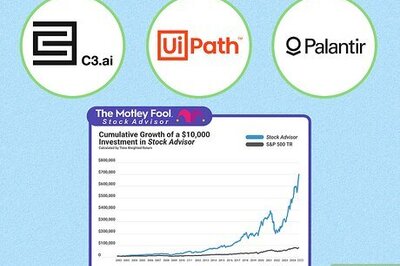
views
Beijing: China received $87.36 billion in FDI this year, down 1.4 per cent compared to last year, but on course to achieve the official target of $120 billion and help the government's "Made in China" drive. China's outbound direct investment (ODI) by non-financial firms rose to $74.96 billion up 21.6 per cent from one year earlier.
FDI inflows for the first nine months, excluding the investment in the financial sector, topped $87.36 billion dollars, down 1.4 per cent from the same period last year, with the decline pace narrowing from the 1.8 per cent, the Chinese Commerce Ministry said on Thursday.
But the pattern of investment is changing as service sector received 55.7 per cent FDI indicating shifting of China's economy more into services from its mainstay of manufacturing. Growth of FDI into the manufacturing this year dropped 16.5 per cent year on year to $29.63 billion accounting for 33.9 per cent of the total, down from the 35-per cent reported in the first eight months, state-run Xinhua news agency reported.
China is expected to attract about $120 billion of FDI in 2014, it said. Hopeful of continuing to be an investment hub, China launched "Made in China" campaign with host of tax concessions along with Prime Minister Narendra Modi's "Make in India" campaign in a bid to retain its manufacturing prowess.
Under the new campaign, China will encourage high-tech imports, R&D to upgrade "Made in China", provide tax breaks to encourage enterprises to upgrade their equipment to improve the manufacturing industry. Companies that bought new R&D equipment and facilities after January 1 or possess minor fixed assets will have taxes reduced based on value.
Imported high-tech equipment will also enjoy tax deductions in aviation, bio-medicine production, manufacturing of railway and ships, electronics production including computer and telecommunications, instrument production and those used in making IT products and software, the report said.
FDI inflows rose 1.9 per cent to $9.01 billion in September from a year earlier after a 14 per cent slump in August. It's a sign that investors are more confident about the growth outlook in the world's second largest economy, supported by a recent string of fiscal and monetary policies, the report added.
















Comments
0 comment